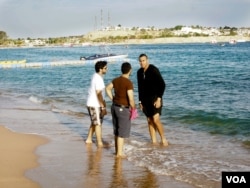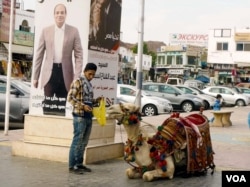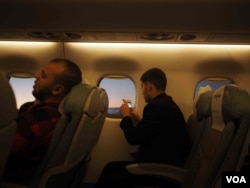The shores of Sharm el-Sheikh are usually packed during the holiday season. But after a Russian plane that had taken off from here crashed in late October, killing all 224 people on board in an apparent terrorist attack, business has plummeted.
Business owners say most of their income used to come from Russian and British tourists. But both countries have suspended direct flights to Sharm el-Sheikh.
“There is no work," said Ezzat, who owns a shop that caters to tourists. "They say we are operating at 30 percent or 35 percent capacity, but there is nothing.”
Officials are actively courting tourists from Saudi Arabia and other wealthy Arab countries. But workers say the increase in business from the Gulf has not been nearly enough to make up for their losses.
The tourism sector, one of Egypt’s largest industries and main sources of foreign income, has been reeling since the Arab Spring uprising of 2011.
Egyptian tourists, who now appear to make up the bulk of the visitors in Sharm el-Sheikh, say fear may be keeping people away, but daily life for vacationers has not changed.
“It’s a beautiful city," said Mona, an Egyptian tourist. "I visited many places. I went to Paris, London, Zurich, Switzerland, Arabic countries — many of them — but I didn’t find a city like this city. It’s so beautiful.”
Officials had hoped 2015 would see the complete recovery of the industry after a nearly 30 percent increase in 2014.
But the plane crash and the killing of eight Mexican tourists, who were mistaken for militants by the Egyptian military while on a desert safari in September, have left many attractions across Egypt desolate.
“We don’t know what will happen after five minutes, so we cannot talk about next year,” said Ahmed, another owner of a shop for tourists.
Officials trying to revive the industry say they are hopeful 2016 will be better. Egypt’s natural and ancient treasures may attract different groups at different times, they say, but in the end, the visitors will always come back.









